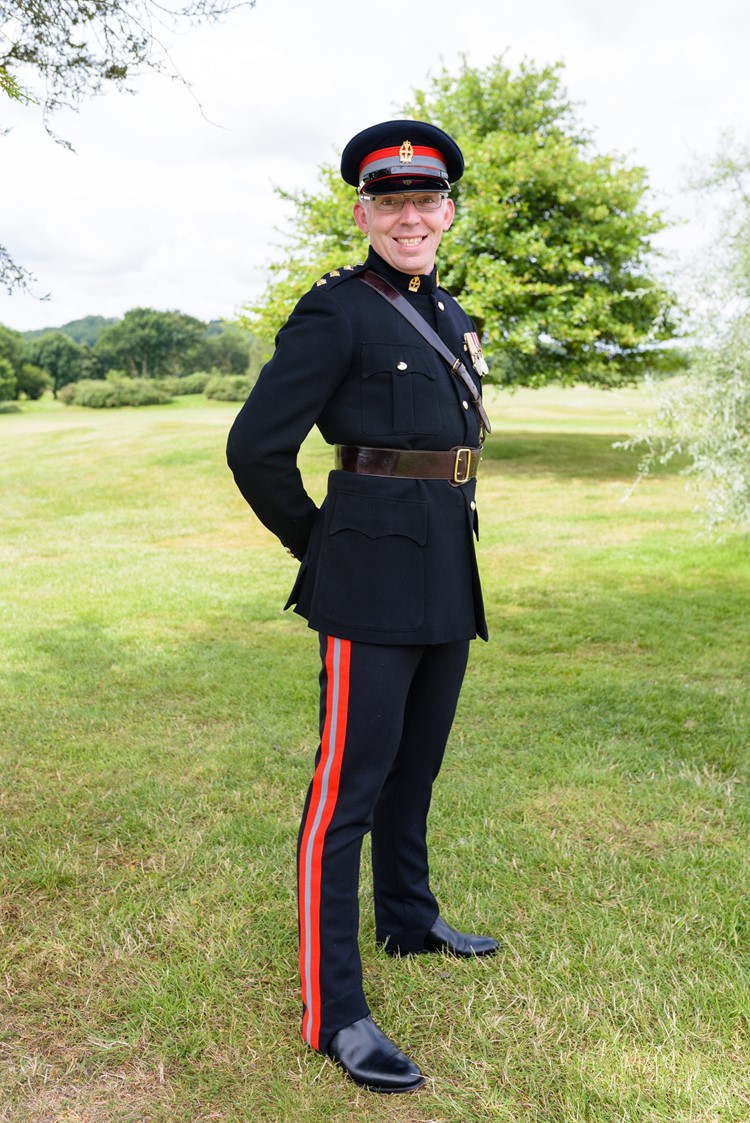- June 23, 2022

To celebrate Armed Forces Day, Major Michael Collins (SO2 Implementation) from the Department of Research and Clinical Innovation (Defence Medical Services) has written a reflective blog on his journey of empowerment. Mike, a FNF scholar and Alumni Champion, shares how being empowered as a student nurse inspired him to empower others during his leadership career in military nursing…
“Empowerment is heavily linked with organisational culture, and to support the progression of personnel inside our bailiwick we must create a culture of empowerment. This requires us to understand people within our teams, to understand what drives them, what they need from us and most importantly, what empowerment looks like to them as individuals. Empowerment is like a snowball rolling downhill, and once it gains momentum, we can build snow people!
Starting my empowerment journey
During my career, I have been extremely fortunate to work with and alongside some excellent leaders, who have placed empowerment of their personnel at the centre of how they do business. At a personal level, I have no A-levels. However, when I joined the Army in 2002 as a student nurse, my cohort leader noticed something in me and managed to facilitate a move from the Nursing Diploma course to the Nursing Degree course.
This empowerment intervention wasn’t provided as an end point but was the start of my empowerment journey. From this moment of empowerment, some 19 year later I am now studying for a Professional Doctorate in Nursing, with a focus on professional identity. What we must remember with empowerment is that whilst leaders can empower, those being empowered also need to commit to their journey and make best use of any opportunities to maintain momentum.
I am now a Florence Nightingale Leadership scholar and have been provided with some incredible opportunities to support my leadership development. A short-sighted view of this would suggest that my development towards obtaining this scholarship started with me presenting the output of my MSc in Occupational Psychology in 2019. However, a more holistic assessment would suggest that this development was catalysed with me being moved onto the Nursing degree in 2002. The opportunities this move generated, alongside the continued empowerment I have experienced, have enabled me to get to where I am now.
Empowerment is a snowball, now let’s build a snow person
When we look at empowerment it is easy for us to look at one episode of empowerment, especially from a leadership perspective and think that we’ve completed the empowerment bit of the jigsaw and we can tick that box. However, this does not fulfil a functional definition of empowerment.
How does this affect us as leaders? Firstly, we can never know how anything we do will impact individuals within our teams in 20 years’ time. What we can know however, is that chaos theory certainly applies in empowerment, and that a small input from us as leaders can be magnified exponentially over time. Equally. empowerment requires momentum, and we need to check in with our teams to understand the effect being had; and moreover, what they need from us as leaders to continue to be “empowered”.
Think of a snowball rolling down a hill; as it rolls down the hill it gains size, momentum and velocity, until it becomes big enough to provide the body of our snowperson.
We as leaders then need to start a second snowball down the hill so that it can become big enough to provide a head, and by lifting this head onto the top of the body we can make our snowperson. But we cannot forget the detail either. To be fulfilled, snow people need eyes, a nose and a mouth, along with buttons on the body and arms. If, as leaders, we facilitate this process on multiple occasions, we build snow people. Detail is important, and through this we spread a culture of empowerment within our teams.”